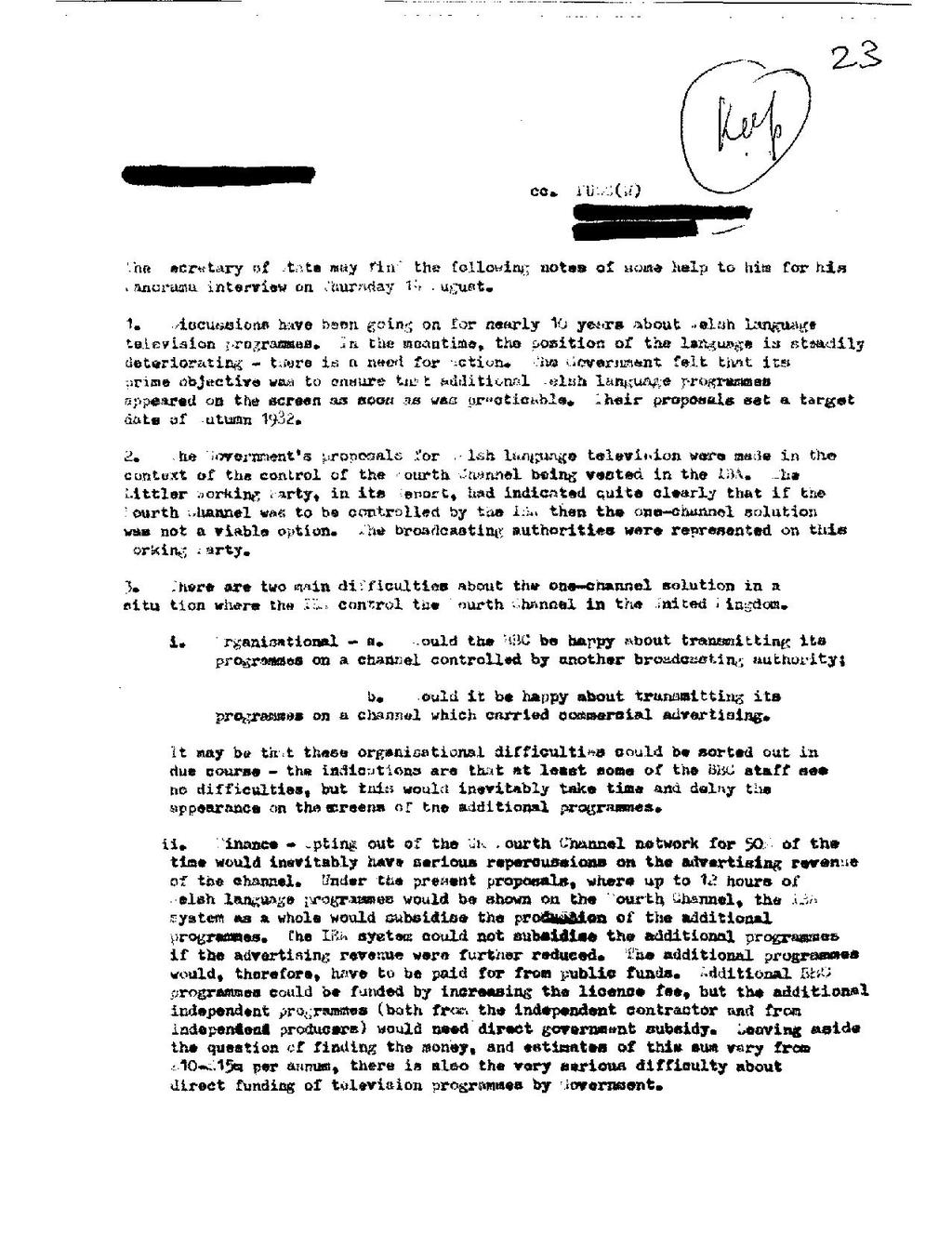# # # # # # # # # #
cc PUSS(W)
- # # # # # # # # # #
- # # # # # # #
The secretary of state may find the following notes of some help to him for his interview on Thursday 14 August.
1.Discussions have been going on for nearly 10 years about Welsh language television programmes. In the meantime, the position of the language is steadily deteriorating - there is a need for action. The Government felt that its prime objective was to ensure that additional Welsh language programmes appeared on the screen as soon as was practicable. Their proposals set a target date of Autumn 1982.
2.The Government's proposals for Welsh language television were made in the context of the control of the Fourth Channel being vested in the IBA. The Littler working party, in its Report, had indicated quite clearly that if the Fourth Channel was to be controlled by the IBA then the one-channel solution was not a viable option. The broadcasting authorities were represented on this working party.
3.There are two main difficulties about the one-channel solution in a situation where the IBA control the Fourth Channel in the United Kingdom.
i.Organisational - a.Could the BBC be happy about transmitting its programmes on a channel controlled by another broadcasting authority; b.Could it be happy about transmitting its programmes on a channel which carried commercial advertising.
- It may be that these organisational difficulties could be sorted out in due course - the indications are that at least some of the BBC staff see no difficulties, but this would inevitably take time and delay the appearance on the screens of the additional programmes.
- ii.Finance - Opting out of the UK Fourth Channel network for 50% of the time would inevitably have serious repercussions on the advertising revenue of the channel. Under the present proposals, where up to 12 hours of Welsh language programmes would be shown on the Fourth Channel, the IBA system as a whole would subsidise the production of the additional programmes. The IBA system could not subsidise the additional programmes if the advertising revenue were further reduced. The additional programmes would, therefore, have to be paid for from public funds. Additional BBC programmes could be funded by increasing the licence fee, but the additional independent programmes (both from the independent contractor and from independent producers) would need direct government subsidy. Leaving aside the question of finding the money, and estimates of this sum vary from £10-£15m per annum, there is also the very serious difficulty about direct funding of television programmes by Government.
